BOONE, N.C. — As the first recipient of Appalachian State University’s National Pan-Hellenic Council (NPHC) Divine Nine Leadership Award, Travian Smith is gaining valuable experience to pave the way toward a career in government as a public servant.
The NPHC — often called the “Divine Nine” — comprises nine historically black Greek-letter organizations, seven of which have chapters on Appalachian’s campus.
It was funded through money raised for Appalachian’s NPHC Plots and Garden project under the leadership of Susan Branch ’99, then-secretary of Appalachian’s Board of Trustees; James “J.T.” Tolliver ’96, co-chair of the NPHC fundraising subcommittee; and James “J.K.” Reaves ’93, then-member of the Appalachian State University Foundation Board of Directors who now serves on Appalachian’s Board of Trustees.
More than 100 donors from each NPHC organization at Appalachian — as well as many others — contributed to the NPHC Plots and Garden project and the award endowment.
Smith, a member of the Kappa Alpha Psi Fraternity, is a junior majoring in political science, with a concentration in public administration, and minoring in community and regional planning. He intends to use his award funds to attend the American Planning Association’s national conference in Houston in April 2020.
While at the conference, Smith will meet professional planners from all over the globe, said selection committee member Brian McCullough ’89 ’98, regional director of development in Appalachian’s Division of University Advancement.
“Travian will gain valuable insight and real-world knowledge on current planning trends and will bring this knowledge back to present to the Appalachian Community,” McCullough said. “Most importantly, he will get to network with experienced professionals and develop relationships that will foster collaboration and input with his future studies. I am really excited about what lies ahead for this young man.”
Smith said he developed an interest in urban community planning after noticing the impact of gentrification — the renovating of homes and businesses within a deteriorating district to conform to middle-class taste.
“Although gentrification benefits society and contributes to the economic development in a community, I see it as an unfair approach for lower socioeconomic citizens,” he said. “I want to make an impact on my community by working to prevent gentrification from taking place in communities that are vulnerable.”
“I chose to come to Appalachian because I wanted to immerse myself in a community unlike where I grew up — in the city of Charlotte — so I could learn to excel in a different environment,” Smith shared. “I had never spent time in the mountains and wanted to experience a different culture. Appalachian is filled with such friendly people who are eager to help me.”
While at Appalachian, Smith has gained experience as an advocate. He served as a freshman class senator in Appalachian’s Student Government Association and is currently on the executive board of Appalachian’s Alternative Service Experience (ASE) program. Smith is also a peer leader for ASE, educating program participants on social justice issues such as poverty, environmental justice and disparities faced in the community.
After graduating from Appalachian, Smith plans to pursue a year of service working in AmeriCorps, a volunteer organization addressing critical community needs. He said he then hopes to continue his education by either pursuing a master’s degree in city and regional planning or earning a law degree focusing on public interest.
What do you think?
Share your feedback on this story.
About the Department of Government and Justice Studies
Appalachian State University’s Department of Government and Justice Studies offers undergraduate programs in political science and criminal justice, and graduate programs in political science and public administration. Housed in the College of Arts and Sciences, the department has over 600 undergraduate majors and more than 70 graduate students. Learn more at https://gjs.appstate.edu.
About the Department of Geography and Planning
The Department of Geography and Planning promotes the understanding of the spatial dimensions of human behavior within the physical and cultural systems of the earth, and the role of planning in achieving improvement in those systems. The department offers degrees in geography and in community and regional planning. Learn more at https://geo.appstate.edu.
About the College of Arts and Sciences
The College of Arts and Sciences (CAS) at Appalachian State University is home to 17 academic departments, two centers and one residential college. These units span the humanities and the social, mathematical and natural sciences. CAS aims to develop a distinctive identity built upon our university's strengths, traditions and locations. The college’s values lie not only in service to the university and local community, but through inspiring, training, educating and sustaining the development of its students as global citizens. More than 6,800 student majors are enrolled in the college. As the college is also largely responsible for implementing App State’s general education curriculum, it is heavily involved in the education of all students at the university, including those pursuing majors in other colleges. Learn more at https://cas.appstate.edu.
About the Division of Student Affairs
The Division of Student Affairs at Appalachian State University is committed to the development of lifelong learners and leaders by engaging and challenging students within a culture of care and inclusion. The division consists of 16 units that offer activities and services to help students develop more fully by becoming global learners, fostering healthy relationships, appreciating diversity and different perspectives, understanding community responsibility, enhancing self-awareness, developing autonomy and living ethically. These units include the Career Development Center, Campus Activities, Office of Community-Engaged Leadership, Wellness and Prevention Services, Counseling and Psychological Services, Student Health Service, Parent and Family Services, University Housing, Student Conduct, University Recreation, Intercultural Student Affairs, Student Legal Clinic and Off-Campus Student Services, Electronic Student Services, Child Development Center, and Staff Development and Strategic Initiatives. Learn more at https://studentaffairs.appstate.edu.
About University Advancement
Appalachian State University’s Division of University Advancement supports and encourages the university’s mission by engaging alumni, friends and the greater community. University Advancement staff help connect these constituents with Appalachian through one-on-one contact and special programming, thereby securing the resources necessary to create the best possible learning environment for Appalachian students and to positively impact the community, region and state. The division incorporates the offices of Alumni Affairs, Development and the Appalachian State University Foundation Inc. Learn more at http://give.appstate.edu.
About Appalachian State University
As a premier public institution, Appalachian State University prepares students to lead purposeful lives. App State is one of 17 campuses in the University of North Carolina System, with a national reputation for innovative teaching and opening access to a high-quality, cost-effective education. The university enrolls more than 21,000 students, has a low student-to-faculty ratio and offers more than 150 undergraduate and 80 graduate majors at its Boone and Hickory campuses and through App State Online. Learn more at https://www.appstate.edu.


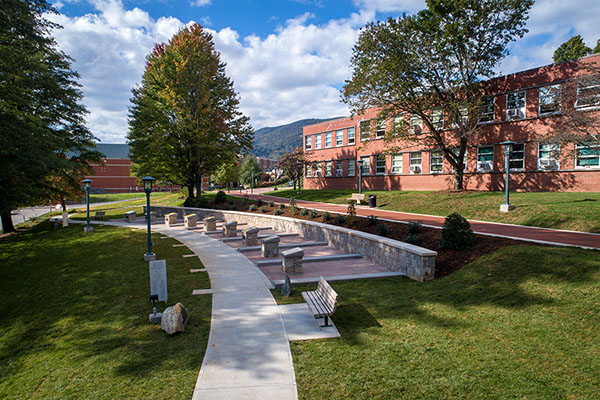
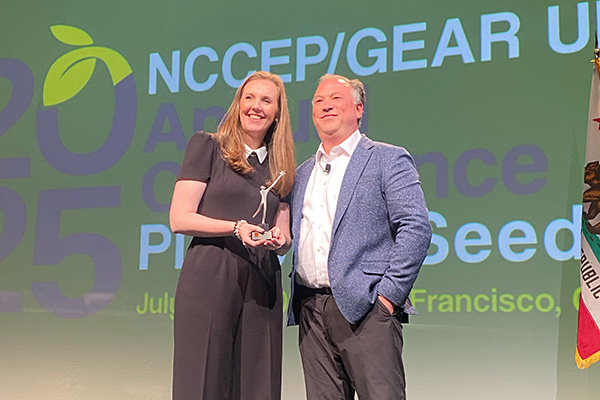
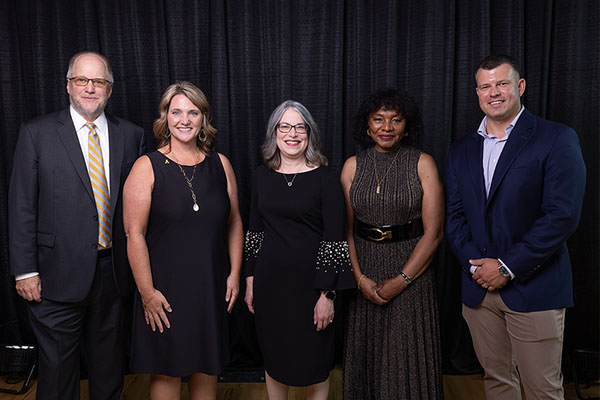


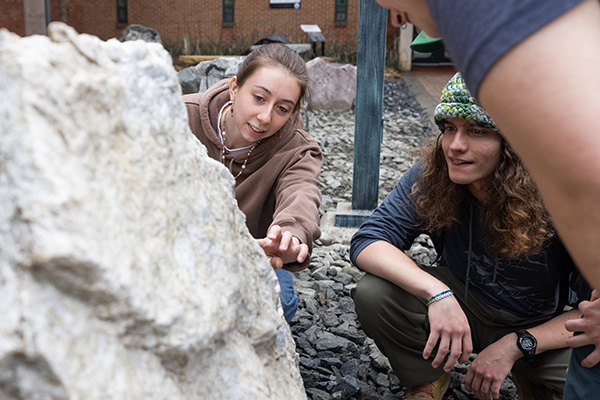
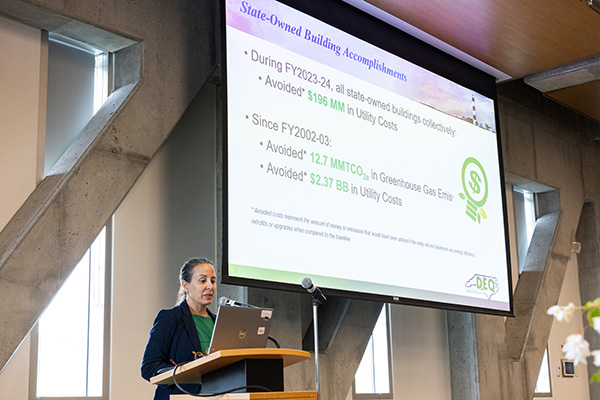



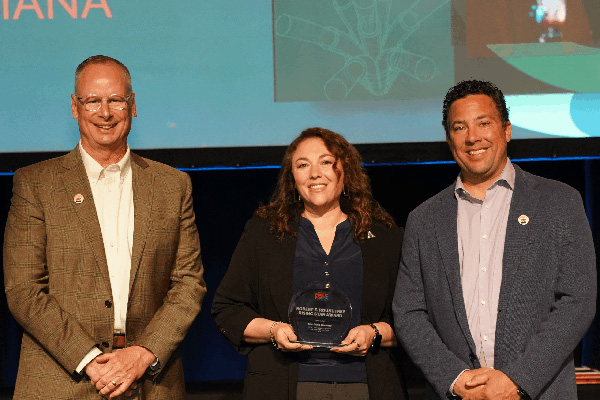
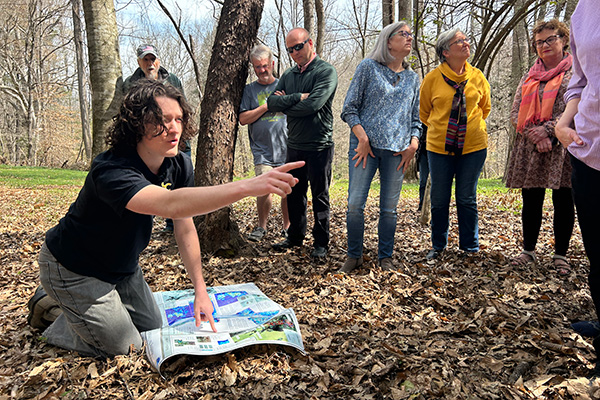
![‘Dragon prince’ dinosaur may be missing link in T. rex evolution [alumni featured]](/_images/_posts/2025/06/dragon-prince-600x400.jpg)